I recently had surgery to repair a torn ACL and meniscus. While I was at home recovering, I watched a whole lot of Shark Tank.
It’s a super popular show for a lot of reasons, and I don’t mind telling you—I think I’ve become a little obsessed with it.
The sharks have these amazing personalities, and I love watching them consider and react to each pitch. But, on top of all the drama, there are some really good lessons to be learned.
Below, find the top five biggest life lessons from my marathon viewing of Shark Tank.
Learn to accept constructive criticism
Since Shark Tank is on TV, it has to be entertaining. That means the investors aren’t always kind to the entrepreneurs who appear on the show. Sometimes, they’re downright cruel.
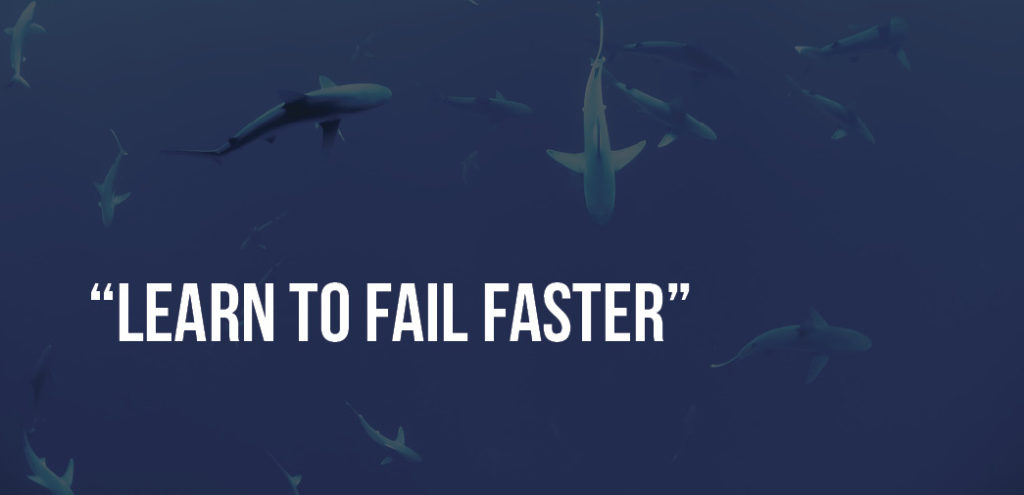
This is done in part for dramatic effect—the sharks are putting on personas—but it also comes from a place of truth. If an idea isn’t worth investing in for whatever reasons, that’s going to become clear really quick.
I’m always preaching the importance of learning to fail faster. Figure out when something isn’t working, then fix it or move on to the next idea. While some of the feedback on Shark Tank might seem harsh, it’s really for the good of the people looking to get their businesses off the ground.
What’s really interesting to me is that the sharks are willing to be insulting (even to each other), and they’re fine the next minute. Most humans don’t have skin this thick. I can’t offend someone one minute and expect them to be my friend the next.
So many businesses have been ruined by egos and the unwillingness to own up to mistakes. When you can accept constructive criticism and act on it, you’ll be much better off.
Don’t settle for “just OK”
Success in business isn’t a lukewarm proposition. If it’s not a “hell yes,” don’t do it.
You’ll sometimes see the sharks seriously considering a pitch, only to eventually back away. This isn’t done to mess with the emotions of the entrepreneur. It’s more that the sharks see some potential in the product being pitched but aren’t completely won over.
The sharks didn’t get to where they are by investing in products they were unsure about. That’s a huge takeaway for anyone who watches the show.
One of my flaws is that I’m sometimes too easygoing. Steve, our company’s CEO, is less easygoing—which is good, because we balance each other out.
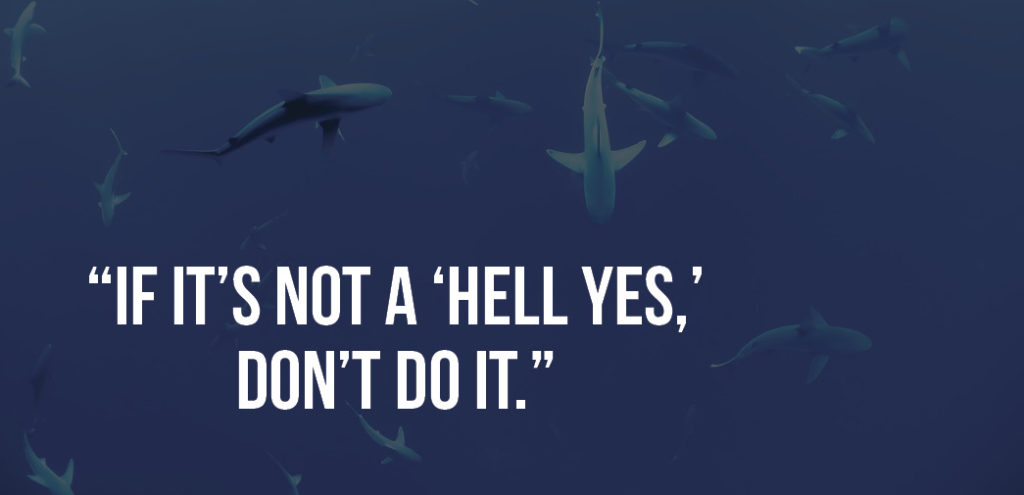
The good news is that I’m learning to speak my mind more. The stakes are just too high if I don’t.
Ultimately, Steve and I mesh so well because we both won’t settle for simply doing well. We both want to reach our goals and then crush them.
Remember this the next time you get an “eh” feeling about something you’re doing. You need to be passionate in order to be successful.
Never let your failures define you
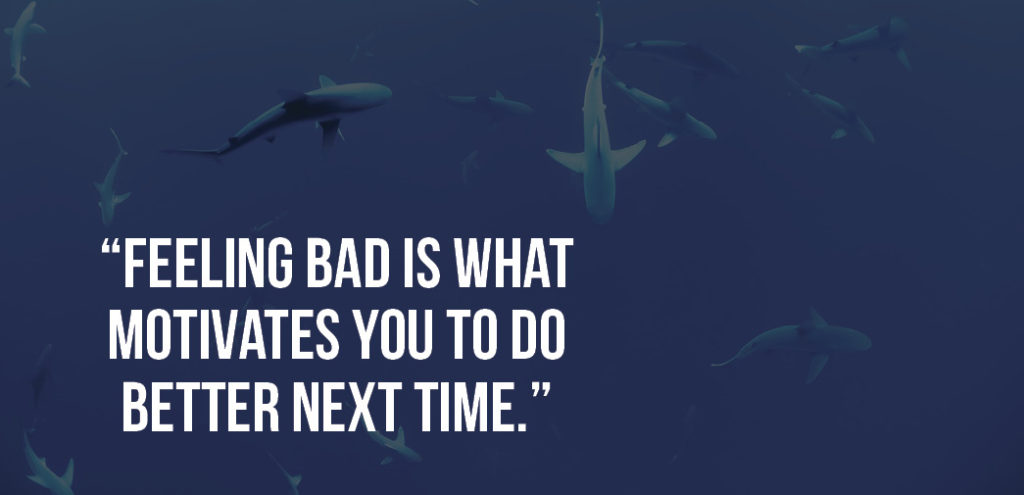
As my favorite shark, Kevin O’Leary says, “Don’t cry over money, because money will never cry over you.”
Sometimes, it feels like everybody who goes on Shark Tank cries.
But here’s the thing: business is extremely personal. It’s like losing a game in the NBA. I totally get why people would get upset over it. But what’s to be gained by dwelling on those bad feelings.
Get up. Realize that it is what it is, and even the most successful people have made countless mistakes in their lives.
When you lose money, it’s normal to feel bad about it. Feeling bad is what motivates you to do better next time. What’s not healthy is to refuse to move on.
Part of not letting your failures define you is realizing that it is in fact alright to fail.
Don’t throw good money after bad
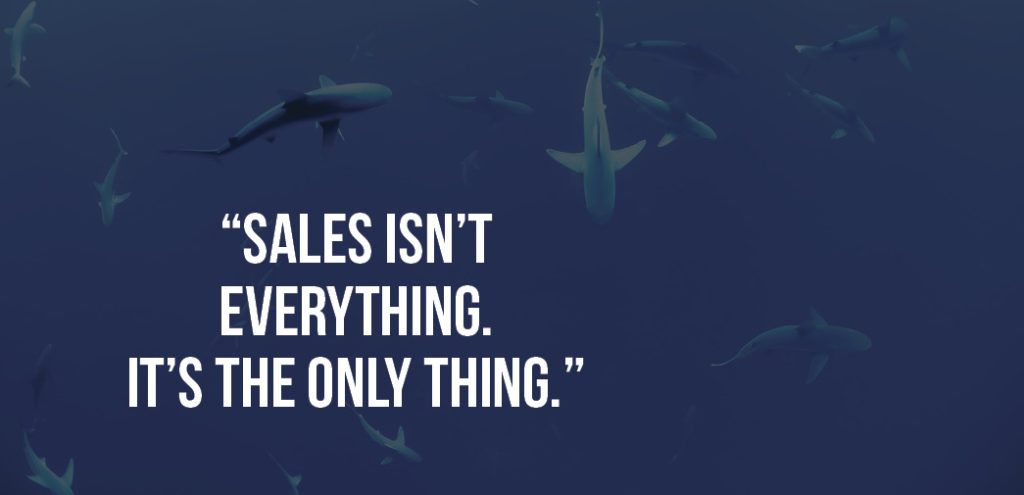
The flip side of not letting failures define you is owning up to your mistakes. When you have a bad idea, you have to know when it’s time to give up.
The number one thing that matters on Shark Tank is whether you have sales or revenue to back up your claims. What’s your profit?
In one episode I watched, there was a guy who was passionate about making his products in America. He failed to realize that if you make a profit manufacturing in China, you can come back and employ people here. But this guy refused to listen.
We have a message on the wall in our office. It says, “Sales isn’t everything. It’s the only thing.”
I’ve had employees who didn’t like this message. The truth is, sales and revenue are the most concrete measures of success for any business.
Of course, it can’t all be about money all the time. You need to have a greater purpose in order to remain passionate. But wanting to close more deals is not greediness.
If you don’t have sales, you can’t help anybody. Pride in your work won’t mean anything if it doesn’t produce anything.
Make the moves that make sense for your business
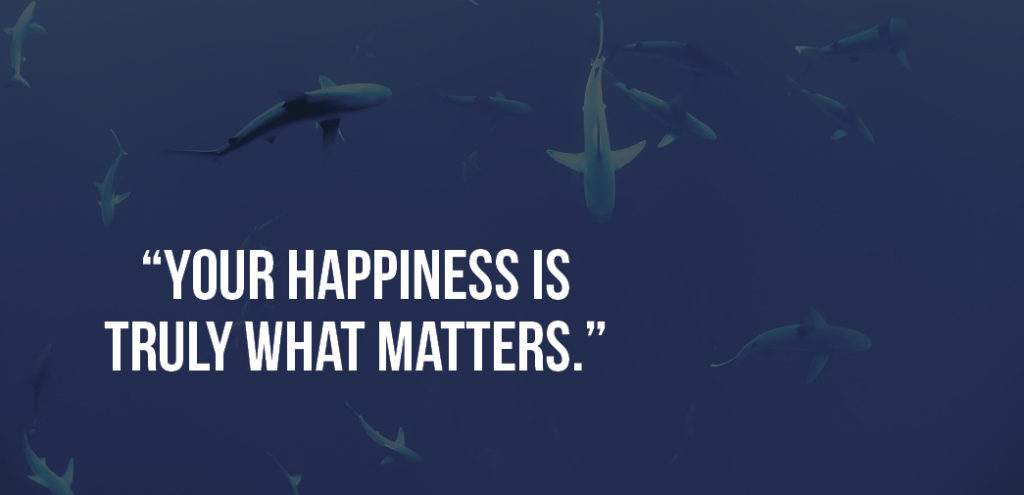
At the end of the day, this is one of the most important lessons any business can learn. While you want to be as successful as possible, you need to know what success means for you.
As Gary “Vee” Vaynerchuk says, many people are happier making $50,000 than others making $150,000. Some businesses shouldn’t go to investors and should just keep doing what they’re doing.
Your happiness is truly what matters. Focus on the thing you do well and accept that you can’t do it all. When you try to do everything, you’re not going to succeed at anything.
If you’re looking for more life lessons that you can apply to your business, be sure to subscribe to Stay Paid, ReminderMedia’s weekly sales and marketing podcast. Every week, we talk to top producers and ask them about the strategies that have driven success for them—giving you golden nuggets of wisdom you can start implementing right away.



















